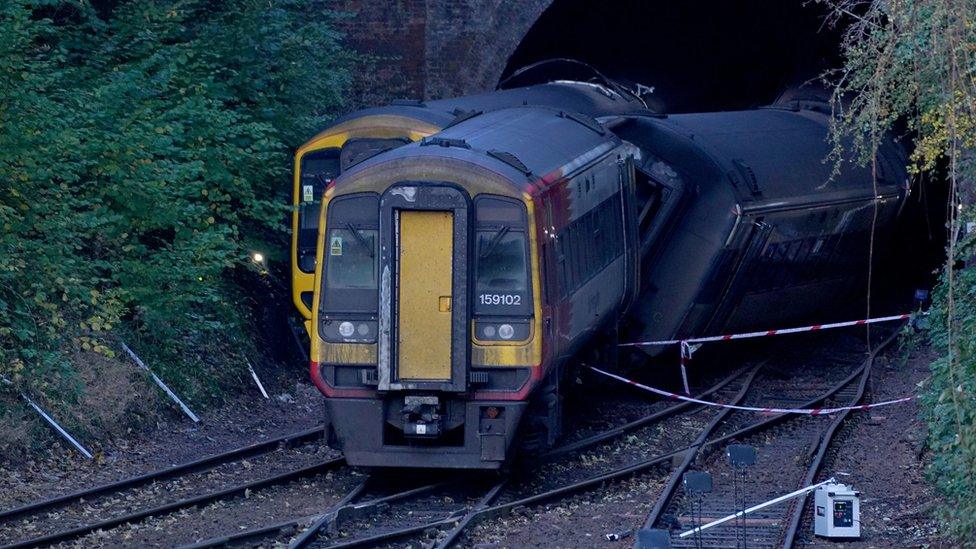Salisbury train crash: London Road reopens
- Published
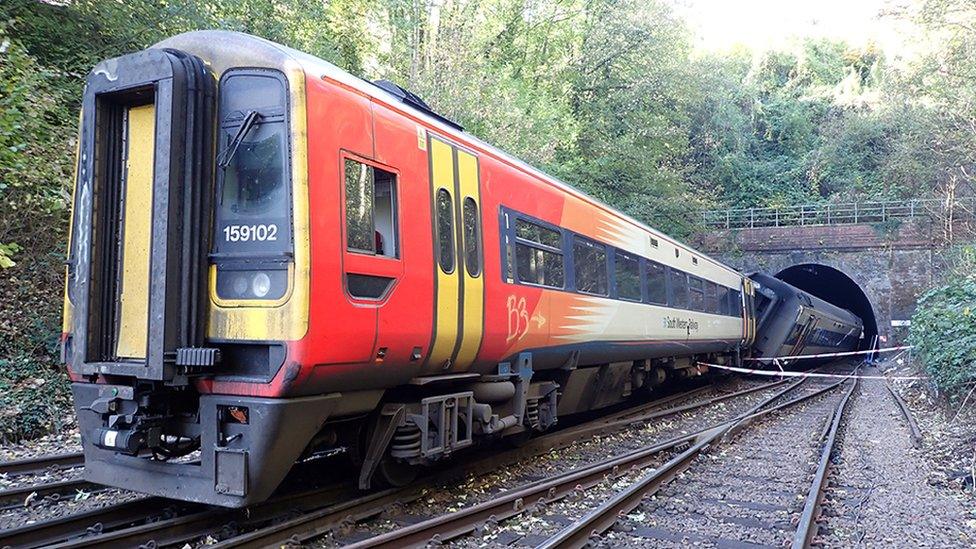
Machinery was brought in to remove the two trains involved in the crash
A main road, which was closed following a crash between two trains in Salisbury, has reopened.
The trains collided on the approach to a tunnel near Salisbury station at about 18:45 GMT on 31 October.
The crash caused major disruption for nine days to a section of the A30 on London Road, which is now open in both directions.
Lines through Salisbury in Wiltshire are set to remain closed until 15 November.
Investigators said a "wheel slide" meant one train did not stop, causing it to run 220 metres (722ft) past a red stop signal before striking another.
London Road was closed for nine days to allow machinery to access the area and for investigation work, track replacements and repairs to be carried out.
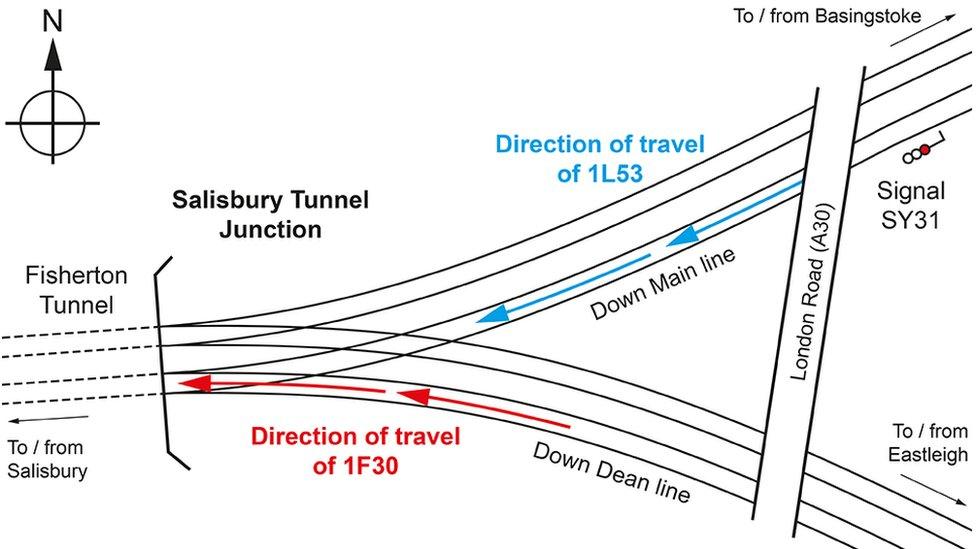
The South Western Railway service ran 220 metres through a red signal before hitting the Great Western Railway train
The crash saw a South Western Railway (SWR) train running from London to Honiton, in Devon, and a GWR service travelling from Southampton to Cardiff, collide at the Fisherton Tunnel.
Both trains had passed a Y-shaped junction, close to the entrance of the tunnel, before the collision.
The SWR train ran past a red stop signal before striking the GWR service, with investigators saying "low adhesion" caused it to slip through.
The driver of the SWR train Robin Tandy, 74, suffered "life-changing" injuries in the crash, with 14 passengers out of the 92 on board requiring hospital treatment.
Salisbury City Council and Wiltshire Council member Charles McGrath said it was "fantastic" to have the road back open again.
"Obviously through no one's fault, Salisbury has been besieged by traffic over the last week, because of the closure of London Road," he said.
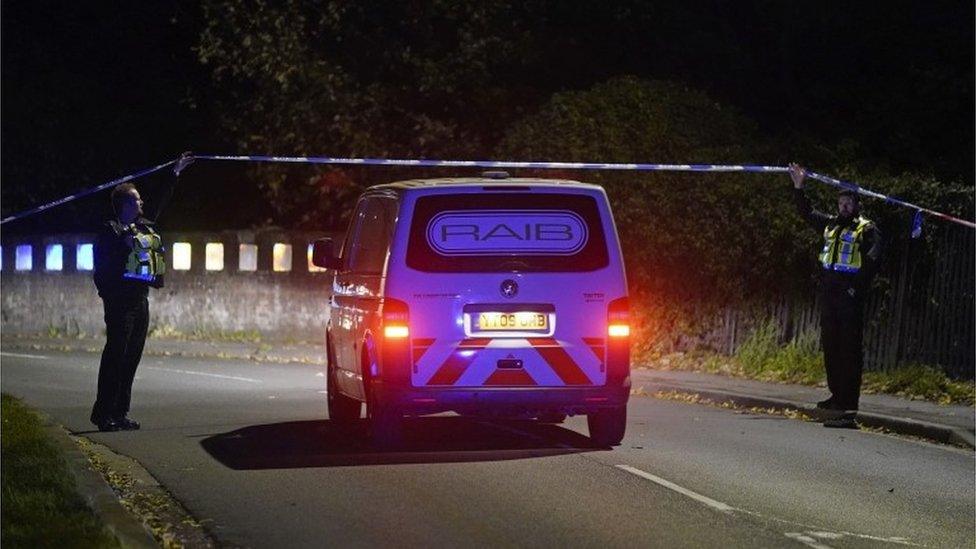
The Rail Accident Investigation Branch is carrying out an investigation
He said the road is the second most significant route in the city.
Mr McGrath added: "Network Rail have a very clear plan of action in terms of what they want to do. Hopefully we're over the worst of it now and in the next week or two we'll see that line reopen."
Network Rail said it is expecting to replace 1,456 sleepers and three sets of moveable rails which enable trains to change course.It also said more than 1,000 yards (0.914 km) of new track will be going down, along with 3,000 metres (1.86miles) of cable for signalling and power supply.

Follow BBC West on Facebook, external, Twitter, external and Instagram, external. Send your story ideas to: bristol@bbc.co.uk , external
Related topics
- Published4 November 2021
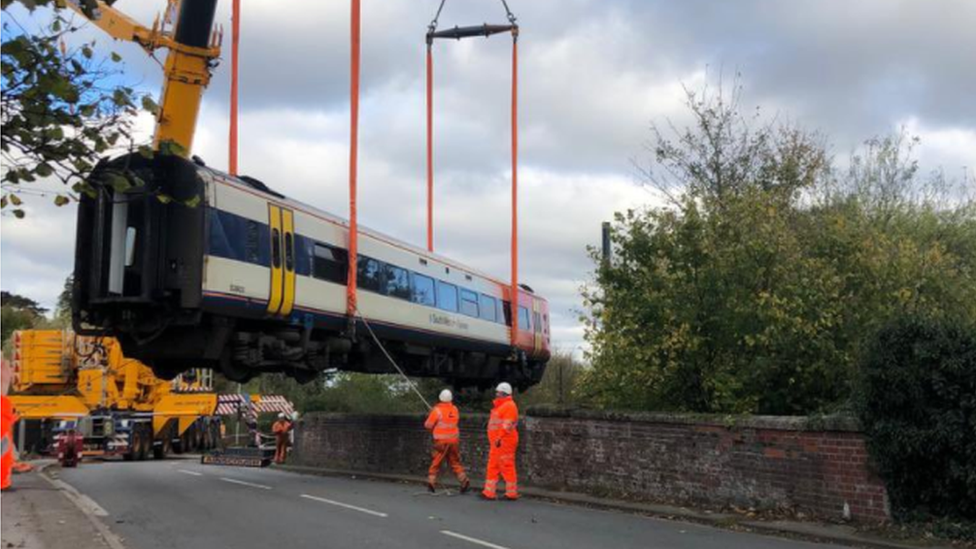
- Published1 November 2021
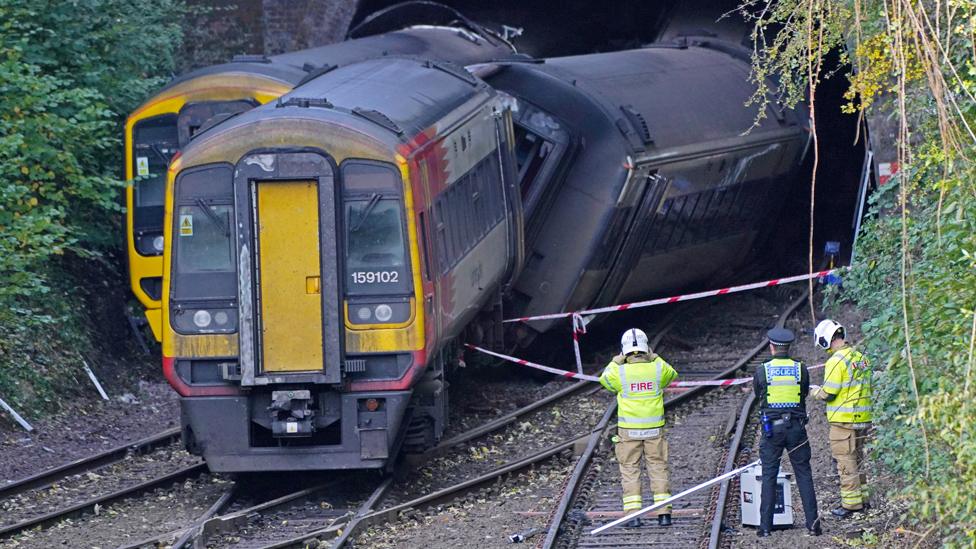
- Published2 November 2021
